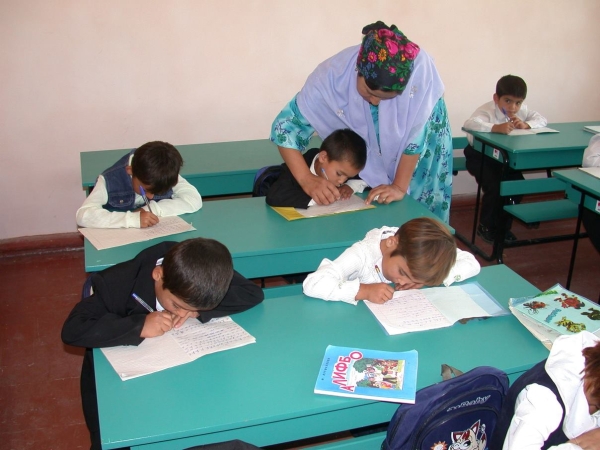
In a report released at a news conference in Dushanbe, the Deputy Minister of education and Science, Badriddin Muzaffarzoda, noted on July 28 that teachers in Tajikistan are set to receive a 30% salary increase starting in September 2025. Currently, teacher salaries range from 1,200 to 1,700 somonis, depending on rank and category.
Under the new pay structure, primary school teachers (grades 1–4) will earn between 1,702 and 2,699 somonis per month, while teachers of grades 5 through 11 will see monthly wages from 1,232 to 1,907 somonis. Additional bonuses will be available for those holding the highest teaching category or serving as homeroom teachers. For example, a top-category primary teacher will earn up to 3,563 somonis monthly.
Salary delays remain a problem
Despite the promised raise, teachers in several regions — including Vose district in Khatlon province and Konibodom city in Sughd province — report not receiving their salaries on time or in full, raising concerns about the system’s reliability and financial management at the local level.
Teacher shortage persists
The country also faces a significant shortage of educators. According to Education Minister Rahim Saidzoda, Tajikistan currently lacks 3,848 schoolteachers. The total number of educators in general education institutions stands at 130,732, with women comprising 66% of the workforce.
Educational qualifications among current teachers vary: 76.8% have higher education (100,445 individuals); 5.2% have incomplete higher education; 16.5% hold secondary vocational education; and 1.5% have only secondary education and are still enrolled in university programs.
In 2024, 3,168 graduates from higher and vocational institutions were assigned to schools across the country. Of these, 71% began teaching, 23% deferred employment due to studies, military service, or family leave, and 5.7% did not report to work without valid reasons.
The government views teacher recruitment and retention as a national priority, especially amid ongoing reforms to improve education quality and access.
In Tajikistan, a teacher's salary is affected by the number of students in their class. While the base salary may be low, teachers can receive additional allowances based on the number of students they teach. However, this system can create inequities, as teachers with larger classes do not necessarily receive a significantly higher income for the increased workload and responsibility.
Compared to average salaries of educators in neighboring countries, the average salary of a teacher in Tajikistan – 1,646 somonis (just over US$150) is significantly lower.
For comparison, the average teacher salaries in other Central Asian countries are:
- Kazakhstan – US$790
- Uzbekistan – US$335
- Kyrgyzstan – US$308
- Turkmenistan – US$275
Low wages have become one of the main reasons for the mass exodus of teachers from the education system and a decline in teaching quality.




